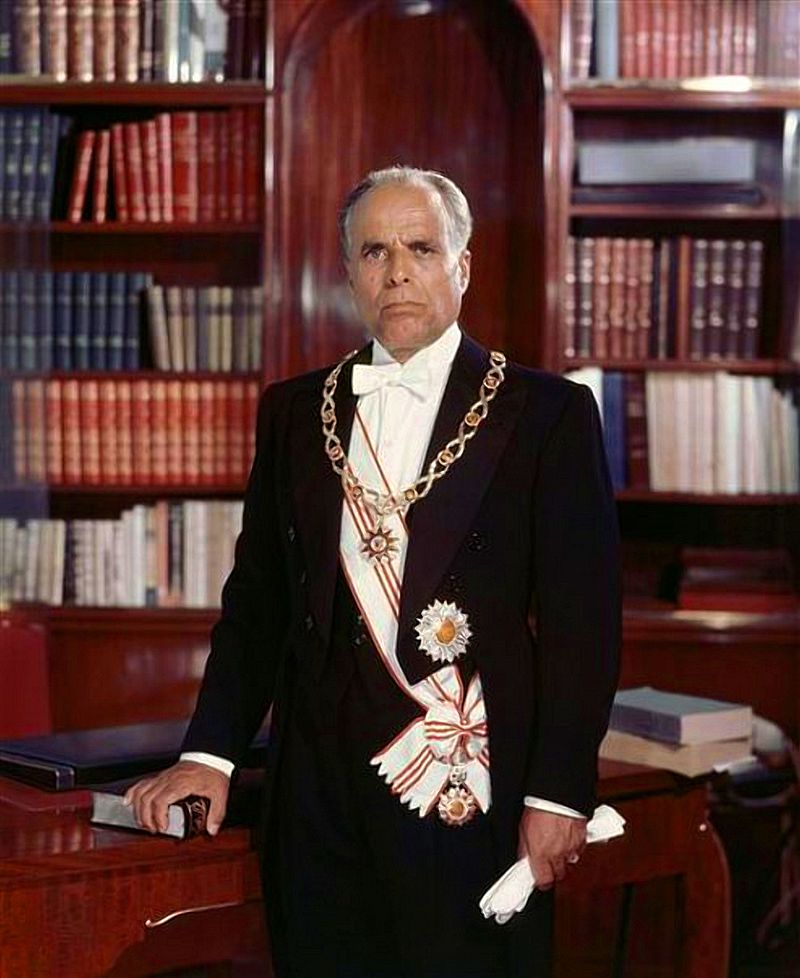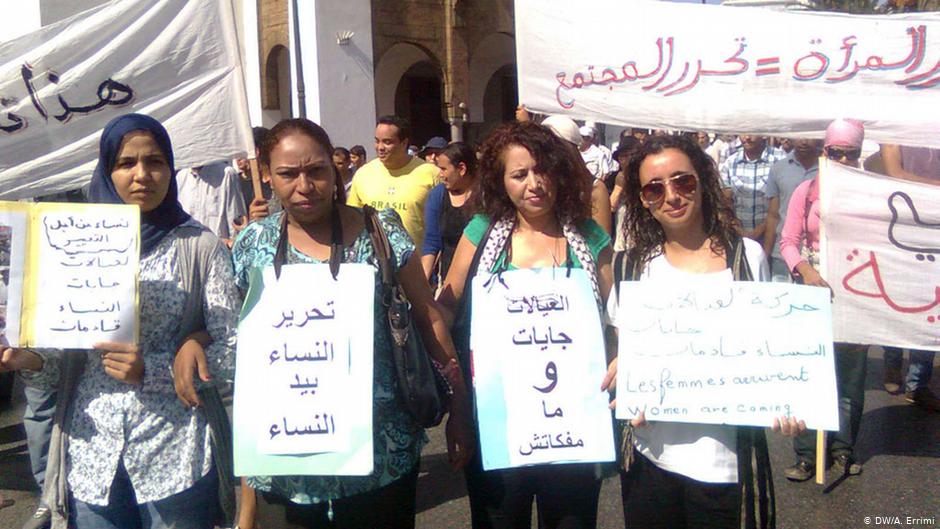Islamic family law reform – a question of interpretation

We are seeing a continual rise in the interest of legal scholars and oriental specialists in the family law of Islamic nations. Female academics in particular are conducting research – frequently from a feminist perspective or within a gender studies framework – on the legal status of women in the Muslim world, a status that is for the most part determined through codes of family law.
As a consequence of increased levels of migration from Islamic countries, justice and immigration authorities have an increased need for relevant knowledge, something that provides the studies with additional impetus.
Wherever the legal systems of Islamic nations encounter reforms, these frequently start with family law. In these endeavours, preventing polygamy is just as much a goal as restricting the traditional right of a husband to unilaterally end a marriage through "repudiation divorce" (talaq).
Reformers are also pushing for a higher minimum age for marriage. Two female American jurists and a female lawyer recently conducted a comprehensive study for Arab nations of reform efforts undertaken since the adoption of Late Ottoman family law in 1917 – a package that had a particularly momentous effect on some countries.
Their research not only found a series of improvements in the rights of women and girls – for example with regard to the marriageable age – but they also believe they have identified the reason why the reform efforts were successful: in the presentation of their arguments, the initiators dispensed with western human rights discourse, drawing instead on the religious texts and legal traditions of Islam (Kristen Stilt, Salma Waheedi, Swathi Gandhavadi Griffin, "The Ambitions of Muslim Family Law Reform", in: Harvard Journal of Law & Gender, 2018).
Under the influence of the four traditional schools of law
In the pre-modern era, the Sharia code was characterised by the four traditional schools of law, each of which had – and in some places continue to have - varying levels of influence according to country and region. With the creation of nation states, some elements of Islamic law were incorporated into public legislation.

Ottoman family law had a significant impact on the codification process in countries under French and British mandates, because Ottoman law was largely adopted by the new governors.
But in modern Turkey under Ataturk on the other hand, the government soon distanced itself from the system. Turkish family law, anchored in 1926 in the newly-introduced civil code, was the first – and for a long time the only – package in the Islamic world to include an explicit ban on polygamy. This has nevertheless not prevented its illegal practice in some areas of the country to this day.
No progress without recourse to genuine Sharia traditions
Polygamy was also explicitly forbidden in Tunisia, but only in 1957 and only thanks to the intervention of President Habib Bourguiba. And although he evoked universal human rights, the legislative step was carried out by applying the traditional Islamic process of ijtihad, which allows for new interpretations of the holy scriptures.
In the case of Tunisia, the familiar Koran verses on the subject of polygamy (4:3, 4:129) were cited - verses that although they legitimise polygamy, also at the same time admonish the husband to treat all his wives equally. Tunisian lawmakers homed in on these particular caveats in the Koranic text with the argument that polygamy inevitably results in unfairness and must for that reason be prohibited.
In their reasoning, they invoked the Koranic statement (4:129) "And you will never be able to be equal between wives, even if you should strive to do so", words that in this instance were interpreted literally – unlike traditional scholars of law who tend to relate this passage only to the emotional relationship between the husband and his wives. To avoid polygamy in the Arab countries where it is not explicitly forbidden, lawmakers have resorted to the instrument of binding prenuptial agreements as a way to help women safeguard themselves against polygamy.
The three more moderate schools of law take a generally sceptical view of the use of this legal tool; in this case the strict Hanbali school is proving to be the most open. If needs be, followers of the other schools of law can fall back on the latter by way of the practice of takhayyur – the selection and ensuing adherence to a minority opinion.
The Ottoman law of 1917 already made use of this possibility. The wife was granted the right to dissolve the marriage if her husband took a second wife. This example was followed by the Jordanian family law of 2010, which entitles both marriage partners to include conditions in the prenuptial agreement.
This is one way in which a woman can protect herself against polygamy and restrictions on her freedom, for example if her husband prevents her from working or travelling abroad. If the husband does not respect these rules, the marriage can be annulled in court. In Jordan, this law came to pass not least thanks to a campaign by women's organisations, which were nevertheless only able to push through some of their demands against the country's religious establishment.
Divorce in return for the garden
After Kuwait (1984), the Gulf states of Bahrain, Qatar and the United Arab Emirates also gave women the option to include restrictive conditions in prenuptial agreements. Saudi Arabia is the only Islamic country that has not yet codified its family law.

As well as takhayyur, the talfiq method (piecing together) allows for the selection of views from the various schools of legal thought if one of these schools is not able to provide an adequate response to new problems. Ottoman lawmakers also made use of this possibility to enable women to dissolve a marriage under particular circumstances – for example if a husband is absent for a lengthy amount of time.
More recent family legislation in Jordan, Bahrain and Kuwait has extended the list of circumstances justifying a divorce to include alcoholism, for example. In the United Arab Emirates, non-payment of dowry is also now regarded as grounds for divorce.
Since 2000, women wanting a divorce in Egypt have the option to end the marriage by renouncing all financial claim on the husband (khul’). In this case, as the American authors of the study show, the ijtihad process was also applied. Instead of the Koran, this approach referred to a hadith, a narrative record from the life of the Prophet.
The hadith relates the following scenario: owing to perceived defects in her husband's character, a woman was fearful that she would behave in an un-Islamic manner if she remained with him. When she told the Prophet of her wish to dissolve the marriage, Muhammad asked if she would be willing to return the garden that her husband had given her. When she agreed, the Prophet told the husband to agree to the divorce.
Central significance of family law
Just as in the case of the Tunisian family law of 1957, Egypt now also issued a new reading of a well-known textual source: whereas, from the point of view of Islamic legal scholars, the individuals in the hadith dissolved the marriage in mutual agreement, it was now emphasised that the husband was only induced to divorce his wife through the intervention of the Prophet.
Since 2000, in this nation on the Nile the role of mediator has been played by the courts which, if the wife relinquishes claims to all assets, can dissolve a marriage even against the husband's will – following a mandatory attempt at reconciliation.
Hadith literature was also used in 2004 in reforms to Moroccan family law (Mudawana) specifically in abolishing the subordination of a wife to her husband. The hadith passage in question praises as honourable the husband who appreciates his wife and castigates as a rogue the man who degrades her. Another quoted hadith serves as a reminder that men and women are born as equals.
Research is also being carried out in Germany on how this recourse to Islamic written sources is influencing current legal discourse in Muslim countries. As part of the international research project "Understanding Sharia: Past Perfect, Imperfect Present", the scholar of Islamic studies Irene Schneider is leading a research group with a special focus on gender issues in Israel and the Palestinian territories.
Drawing on Islamic traditions
In the introduction to her anthology, co-published with Nijmi Edres and titled "Uses of the Past: Sharia and Gender in Legal Theory and Practice in Palestine and Israel" (Harrassowitz, Wiesbaden 2018), the two academics demonstrate similar findings to those of their American colleagues, namely that legislative reforms thus far in the Muslim world that affect the relationship between the genders have not referred back to the western discourse, but rather to Islamic tradition.
This trend also characterises the debate over the creation of a Palestinian family code intended to replace family law packages in force to this day – the Egyptian from 1954 in the Gaza Strip and the Jordanian from 1976 in the West Bank.
As reported by Lara-Lauren Goudarzi-Gereke in her contribution to the volume, attempts to do this have so far failed due to internal rivalry between Fatah and Hamas as well as the divergent views of women's organisations and the religious Palestinian establishment.
In the most recent draft law from 2013, it may well be the case that women are given greater scope to end their marriage through khul'. But while the authors of this bill justify this reform by innovatively combining the views of different Islamic schools of legal thought, they adhere to the conservative Islamic legal maxim that allows the husband – with only a few associated requirements - to unilaterally end the marriage without recourse to a court.
Just as elsewhere in the Islamic world, Goudarzi-Gereke says that in the Palestinian case, there can be no progress for reformers without recourse to genuine Sharia traditions. Particularly in the case of the Palestinians, who have repeatedly had the legal systems of foreign powers forced upon them, the institution of the family – and thereby, also, of family law – is of central significance for the collective identity.
Joseph Croitoru
© Qantara.de 2019
Translated from the German by Nina Coon
